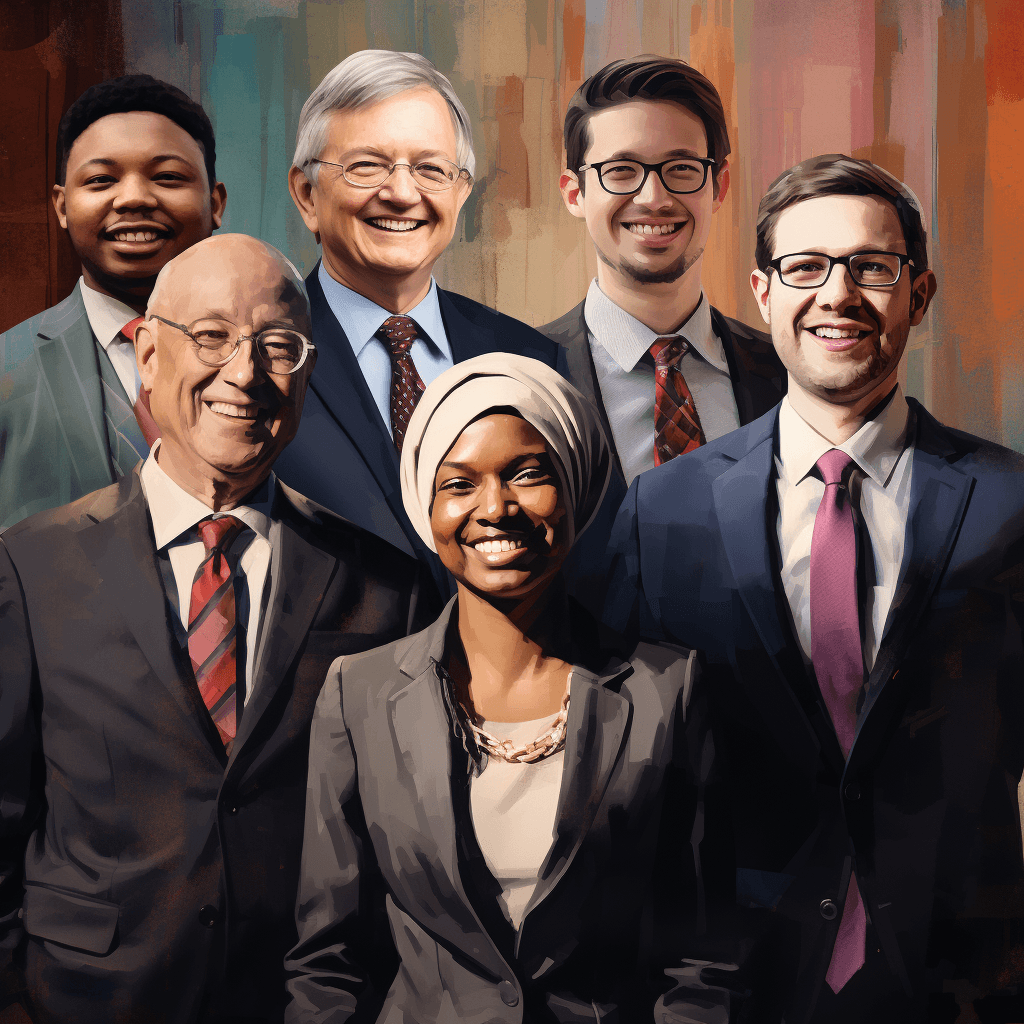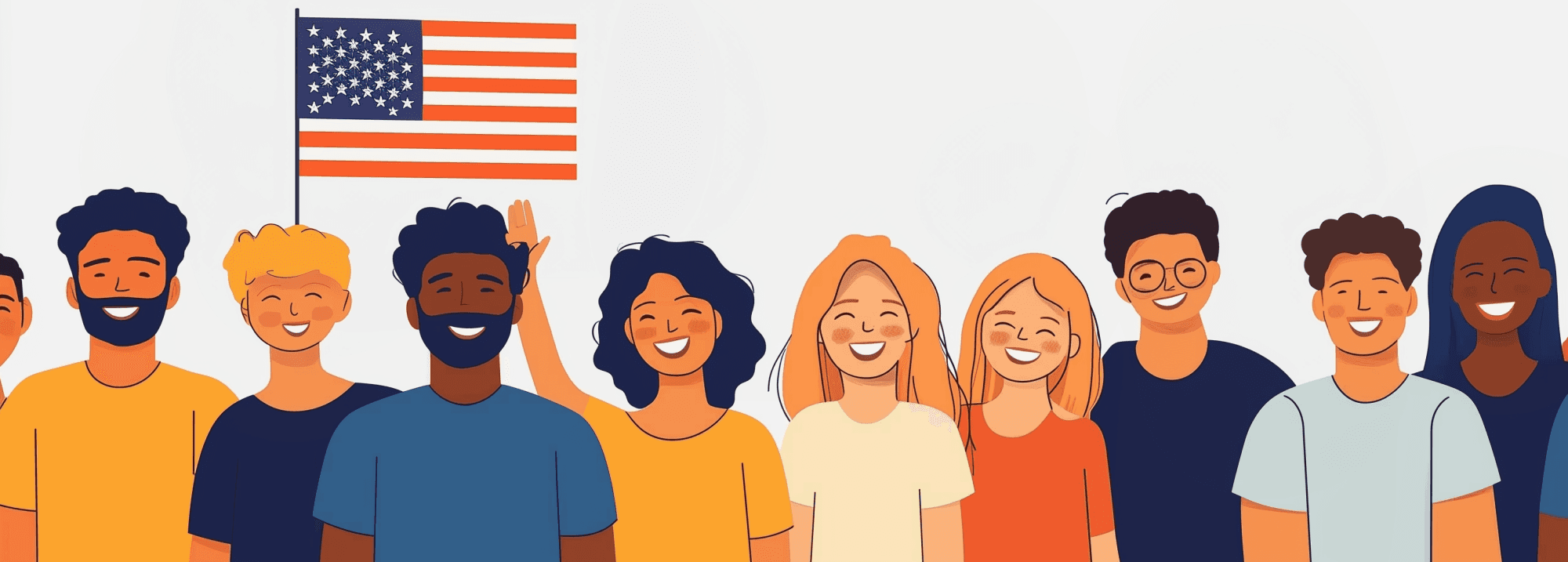
Why Is It Important to Vote? Your Voice's Impact on Democracy
- Why Is Voter Turnout Important?
- How Voting Makes a Difference
- Why Is the Right to Vote Important? The History of Voting Rights
- The Movement for Election Reform
Among the biggest challenges in modern American elections is getting people to the polls. The reasons for voter apathy can vary, but their sentiments can be summed up in just a few comments from eligible voters who increasingly prefer to stay home on election day:
“I can’t stand either candidate.”
“I’m too busy just trying to survive.”
“My vote doesn't matter, so why bother?”
“The elections are rigged.”
There are many reasons for voter inaction. But the situation turns around when we honestly answer the question: “Why is it important to vote in elections?”
Why Is Voter Turnout Important?
In a democracy, every vote counts, and every voice matters. It’s not simply a matter of answering the question of “Why is it important to vote?” but explaining why voter turnout matters. The answer lies in the profound impact that voting has on our society, our government, and our future.
Whether in a presidential election or a local school board race, voting is a fundamental right that allows citizens to shape the future of their country. Sometimes, an election is determined by just a handful of votes.
How Voting Makes a Difference
Voting is not just a civic duty; it's a powerful tool for change. When you cast your ballot, you're choosing your representatives and influencing the policies that will govern your life. From healthcare and education to taxes and foreign policy, the decisions made by elected officials affect every aspect of our daily lives, even when that impact isn’t immediately apparent.
By voting, you help decide who will hold power and make those critical decisions. Moreover, voting is a way to hold elected officials accountable. If they fail to represent your interests, you can vote them out of office. This mechanism ensures that the government remains responsive to the people.
However, it’s important to acknowledge that our election system is imperfect. Issues such as gerrymandering, voter suppression, and the influence of dark money in politics can undermine the fairness of elections. While these challenges exist, they also highlight the importance of participating in the democratic process and advocating for reforms that strengthen our electoral system.
Voting in Presidential Elections
Presidential elections receive the most attention, and for good reason. The president of the United States holds significant power, influencing both domestic and international policies. Voting in presidential elections is crucial because the outcome affects the entire nation, and it has a ripple effect that can impact events in the wider world.
Presidential candidates present different visions for the country’s future, and your vote helps determine which vision will be realized. The president appoints Supreme Court justices, signs or vetoes legislation, and serves as the Commander-in-Chief of the armed forces. These roles have far-reaching implications, making your vote in presidential elections a critical expression of your values and priorities.
Voting in presidential elections is also important because there are state and local races on the same ballot to consider. These elections have a more direct impact on your life and the quality of life in your community that multiplies the impact of voting.
The Impact of Down-Ballot Voting
While presidential elections are important, down-ballot races — contests for positions like senators, representatives, governors, and local officials — are equally vital. Considering elections from the bottom up can have a more immediate impact on your daily life than focusing only on the presidential race.
For example, state and local officials make decisions on issues like education, transportation, public safety, and zoning. They also play a crucial role in redistricting, which can affect the fairness of future elections. Voting in these races ensures that your community is represented by leaders who share your views and will advocate for your interests.
Down-ballot voting also affects the balance of power in legislative bodies like Congress and state legislatures. These bodies pass laws and budgets that significantly impact your life. By voting in these elections, you can help restructure the political landscape and shape the direction of your state and country.
Why Is the Right to Vote Important? The History of Voting Rights
The right to vote has been hard-won in the United States. At our country’s founding, voting was largely restricted to white, male landowners. Over the centuries, this right has been expanded to include nearly all citizens, regardless of race, gender, or socioeconomic status.
In the United States, any U.S. citizen over 18 years of age who is registered to vote by their state’s deadline can cast a ballot in presidential elections. Non-citizens can also vote in local elections in some places.
The rules on who can vote vary by state, but exceptions often include:
Convicted felons
People with certain mental impairments
The history of voting rights is a testament to the power of perseverance and the belief that every voice deserves to be heard. From the abolition of property requirements to the enfranchisement of women and people of color, each milestone in the expansion of voting rights represents a step toward a more inclusive democracy.
Many individuals and groups have dedicated their lives to ensuring that all citizens can participate in the electoral process. As beneficiaries of these efforts, we have a responsibility to exercise our right to vote and continue the fight for a more just and equitable society.
The 15th Amendment
The 15th Amendment, ratified in 1870, was a significant milestone in the expansion of voting rights. It prohibited the federal government and states from denying a citizen the right to vote based on race, color, or previous condition of servitude. This amendment was a direct response to the injustices faced by African Americans, particularly in the southern states, where discriminatory practices like literacy tests and poll taxes were used to disenfranchise Black voters.
Despite the passage of the 15th Amendment, many African Americans were still later denied the right to vote through various means. It wasn’t until the Civil Rights Movement of the 1960s that these discriminatory practices were effectively challenged and dismantled. The 15th Amendment laid the foundation for future reforms and remains a powerful symbol of the ongoing struggle for racial equality in the United States.
The Women's Suffrage Movement
The Women's Suffrage Movement was another crucial chapter in the history of voting rights in the United States. For much of the country's history, women were denied the right to vote. The movement for women's suffrage began in earnest in the mid-19th century, as women organized, protested, and lobbied for the right to participate in elections.
The movement faced significant opposition, but after decades of persistent effort, the 19th Amendment was ratified in 1920, granting women the right to vote. This victory was not only a triumph for gender equality but also a recognition of the fundamental principle that all citizens should have a voice in their government.
The Women's Suffrage Movement stands as a reminder that the right to vote has been hard-won and should not be taken for granted. By exercising this right, we honor the legacy of those who fought for it and ensure that our voices are heard in the democratic process.
The Voting Rights Act of 1965
Ninety-five years after African-American men were granted the right to vote by the 15th Amendment, it became clear that more government action was needed to protect this right. One of the greatest achievements of the Civil Rights Movement was the passage of the Voting Rights Act of 1965. Signed into law by President Lyndon B. Johnson, the act was designed to overcome legal barriers at the state and local levels that prevented African Americans from exercising their right to vote as guaranteed under the Constitution.
The act banned discriminatory practices such as literacy tests and provided for federal oversight of voter registration in areas with a history of disenfranchisement. It also required certain jurisdictions to obtain federal approval before making changes to their voting laws, a provision known as "preclearance."
The Voting Rights Act of 1965 was a major victory for the Civil Rights Movement and helped to significantly increase voter turnout among African Americans and other marginalized groups. However, parts of the act have been weakened by recent Supreme Court decisions, underscoring the ongoing need to protect and expand voting rights.
The Movement for Election Reform
While the expansion of voting rights has been a major achievement, there is still work to be done to ensure that our elections are free, fair, and accessible to all. The movement for election reform seeks to address issues that strip voters of their right to vote.
Gerrymandering, the practice of drawing electoral districts to favor one party over another, undermines the principle of fair representation. Voter suppression tactics, such as strict ID laws and purges of voter rolls, disproportionately affect minority and low-income voters. The influence of money in politics can also distort the democratic process, giving wealthy individuals and corporations more power than ordinary citizens.
As you can see, the right to vote was not simply given. People fought for a right that is too often taken for granted, and that struggle continues today. Consider that over the 248-year history of our country, Black men were only granted the right to vote in 1870, and women were kept out of the process until 1920.
To address the challenges we face, advocates for election reform are pushing for measures such as independent redistricting commissions, automatic voter registration, and public financing of campaigns. These reforms aim to level the playing field and ensure that every citizen's vote carries equal weight.
Advocating for Democracy Reform
The strength of our democracy depends on the participation of informed and engaged citizens. By voting, you play a direct role in shaping the future of your community, your state, and your country.
But voting is only the beginning. To truly protect and strengthen our democracy, we must also advocate for reforms that make our electoral system more fair and inclusive.
Whether it's supporting efforts to end gerrymandering, fighting against voter suppression, or pushing for campaign finance reform, there are many ways to get involved. By advocating for these changes, you can help ensure that our democracy remains strong and that every citizen's voice is heard.
How You Can Take Action
Voting is a powerful expression of your values and a vital part of the democratic process. But it's not enough to simply cast your ballot. We must also work to create a system where every vote truly counts.
Together, we can build a more just and equitable democracy for all.
If you're interested in learning more about how you can make a difference, GoodParty.org provides resources and actionable steps toward a more responsive government. Our movement is geared toward ensuring that our elections are fair, accessible, and truly representative of the will of the people.
Frequently Asked Questions
- What is GoodParty.org?
- I’m curious about running for office. Where can I learn more?
- I’m not running for office, but I’d like to get involved. How can I support Independent candidates?




